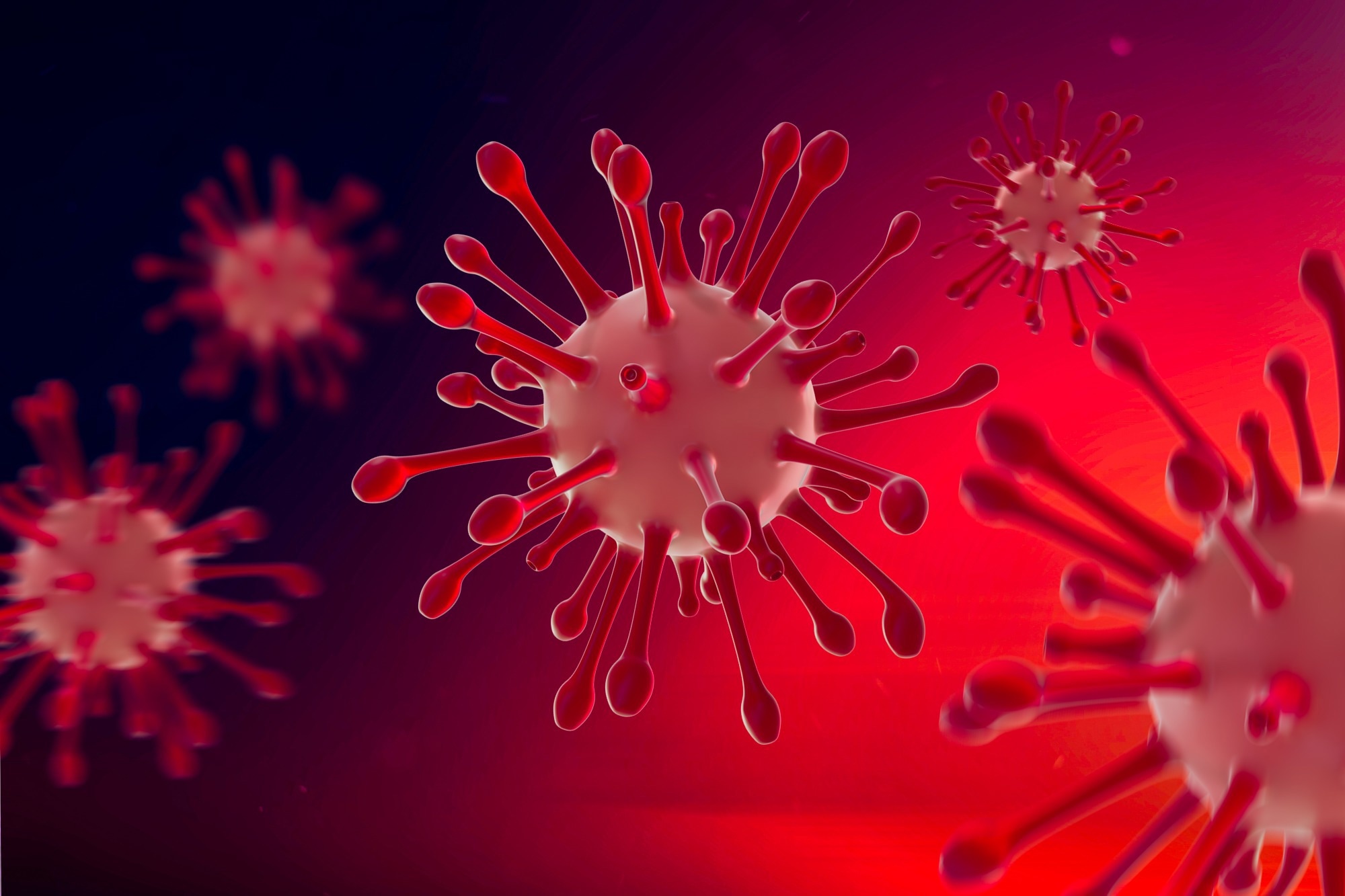In a recent study posted to the bioRxiv* preprint server, researchers evaluated the efficacy of small molecule drugs against severe acute respiratory syndrome coronavirus 2 (SARS-CoV-2) in vitro.
 Study: Identification of new drugs to counteract anti-spike IgG-induced hyperinflammation in severe COVID-19. Image Credit: MIA Studio/Shutterstock
Study: Identification of new drugs to counteract anti-spike IgG-induced hyperinflammation in severe COVID-19. Image Credit: MIA Studio/Shutterstock

 *Important notice: bioRxiv publishes preliminary scientific reports that are not peer-reviewed and, therefore, should not be regarded as conclusive, guide clinical practice/health-related behavior, or treated as established information.
*Important notice: bioRxiv publishes preliminary scientific reports that are not peer-reviewed and, therefore, should not be regarded as conclusive, guide clinical practice/health-related behavior, or treated as established information.
Background
The authors of the present study previously showed that anti-SARS-CoV-2 S (spike) protein immunoglobulin G (IgG) titers are majorly involved in severe SARS-CoV-2 infections as they trigger macrophage hyperactivation, disrupt endothelial integrity, and induce the formation of thrombi. The excessive-inflammatory responses produced depend on the titers of anti-S IgG with atypical fragment crystallizable (Fc) tail-region glycosylation. The development of drugs that can counteract antibody-induced hyper-inflammation while concomitantly minimizing the inhibition of anti-SARS-CoV-2 immune responses could widen the therapeutic landscape of coronavirus disease 2019 (COVID-19).
About the study
In the present study, researchers identified small molecule inhibitors that counteract antibody-induced hyperinflammatory responses in severe SARS-CoV-2 infections.
A macrophage activation assay, capable of evaluating compound efficacy and potency against anti-S-targeted inflammatory responses, was developed and used to screen authorized investigational small molecule inhibitor molecules. The selectivity and potency against anti-S-mediated hyper-inflammation were quantified based on the IC50 (half-maximal inhibitory concentration) values for the activation of macrophages. M-CSF (macrophage-colony stimulating factor) and il=10 (interleukin 10)-differentiated MDAMs (monocyte-derived alveolar macrophage-like macrophages) were used. The macrophage pro-inflammatory responses were assessed based on the IL-6 expression.
The efficacy of SYK (spleen-associated tyrosine kinase) small molecule inhibitors, entospletinib and R406 (fostamatinib’s activated form), and phosphoinositide 3‑kinase (PI3K) inhibitors was compared to that of dexamethasone. Anti-S IgG titers were generated, for which the team incubated SARS-CoV-2 S with serum samples collected from COVID-19 patients hospitalized at the Amsterdam University medical center (UMC) who were infected with the SARS-CoV-2 Wuhan-Hu-1 strain. Sera were obtained during intensive care unit (ICU) admission. The findings were validated in ex vivo experiments BAL (bronchoalveolar lavage)-obtained human pulmonary alveoli macrophages were activated.
Further, HPMVECs (human pulmonary microvascular endothelial cells) were treated with activated MDAMS, and the HPMVEC trans-endothelial electrical resistance was monitored. The effect of potent small molecule drugs on in-situ thrombus formation was tested by adding platelets to macrophage-conditioned medium-activated HPMVECs. Platelet adhesion was assessed underflow to von Willebrand factor (vWF)- and S-targeted IgG immunological complexes formed by COVA1-18, a recombinant mAb (monoclonal antibody) showing anti-S IgG titers with atypical glycosylation (78% and nine percent galactosylated and fucosylated, respectively. The team investigated hyper-inflammatory responses induced by anti-S IgG immunological complexes of various SARS-CoV-2 variants of concern (VOCs) such as Alpha, Beta, Gamma, and Delta VOCs and the Wuhan-Hu-1 strain.
Results
Multiple PI3K and SYK inhibitors counteracted the inflammation mediated by anti-S immunological complexes. Entospletinib, an SYK inhibitor, was identified as the most promising drug candidate to combat anti-SARS-CoV-2 S IgG-induced hyper-inflammation, disruption of endothelial barrier integrity, thrombocyte adhesion, and formation of thrombus. Additionally, entospletinib inhibited the anti-S IgG-mediated hyper-inflammation induced by several SARS-CoV-2 VOCs. Entospletinib and R406 more potently blocked anti-S hyper-inflammation than dexamethasone.
Entospletinib showed no effect on polyinosinic:polycytidylic acid [poly(I:C)]-alone activated macrophage cells. PI3K inhibitors needed greater concentrations (exceeding 10.0 μM) than SYK inhibitors to inhibit 80% of anti-S IL-6, and among PI3K inhibitors, Alpelisib most potently lowered IL-6 expression. Duvelisib, a PI3K-Gamma/Delta inhibitor reduced IL-6 expression upon co-stimulation of anti-S and polyinosinic:polycytidylic acid immunological complexes, the small molecule enhanced IL-6 production in a dose-dependent manner in the polyinosinic:polycytidylic acid-only condition.
Another PI3K-Delta inhibitor idelalisib counterbalanced anti-S-mediated IL-6 expression with no effects on anti-SARS-CoV-2 responses. At the two greatest concentrations, lowered viability and enhanced IL-6 expression in the only-polyinosinic:polycytidylic acid condition were observed. The findings indicated that SYK inhibitors were more potent than PI3K inhibitor molecules. PI3K and SYK inhibitors showed more selective hyperinflammation counteraction than dexamethasone. Entospletinib and R406 inhibited anti-S IL-6 expression, which reduced cytokine expression to the polyinosinic:polycytidylic acid condition concentrations. Upon sera-derived activation of immunological complexes, the two SYK inhibitors showed comparable ex vivo and in vitro inhibition.
Entospletinib selectively counteracted endothelial barrier-damaging mediators produced by macrophages upon stimulation by SARS-CoV-2 and sera-derived anti-S immunological complexes. Thrombocytes adhered to a lesser extent to HPMVECs exposed to media comprising entospletinib-treated macrophages under polyinosinic:polycytidylic acid and sera co-activation. Atypically glycosylated immunological complexes synergized thrombocyte adhesion to vWF. Entospletinib counterbalanced the increased thrombus formation and lowered thrombus volume to that of COVA1-18 mAb controls. Entospletinib and R406 reduced IL-6 expression by 75% to 95% against all VOCs.
Overall, the study findings showed SYK signaling blockade as an effective strategy to counteract the hyperactivation of alveolar macrophages induced by sera-derived immunological complexes. Entospletinib was found to be the most promising SYK inhibitor against severe COVID-19.

 *Important notice: bioRxiv publishes preliminary scientific reports that are not peer-reviewed and, therefore, should not be regarded as conclusive, guide clinical practice/health-related behavior, or treated as established information.
*Important notice: bioRxiv publishes preliminary scientific reports that are not peer-reviewed and, therefore, should not be regarded as conclusive, guide clinical practice/health-related behavior, or treated as established information.